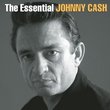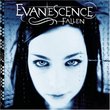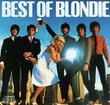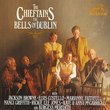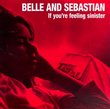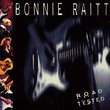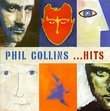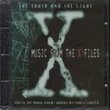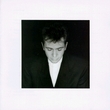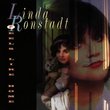| All Artists: Jocelyn Pook Title: Eyes Wide Shut: Music From The Motion Picture Members Wishing: 0 Total Copies: 1 Label: Reprise / Wea Original Release Date: 7/13/1999 Release Date: 7/13/1999 Album Type: Soundtrack Genres: Jazz, Pop, Soundtracks, Broadway & Vocalists Style: Traditional Vocal Pop Number of Discs: 1 SwapaCD Credits: 1 UPC: 093624745020 |
Search - Jocelyn Pook :: Eyes Wide Shut: Music From The Motion Picture
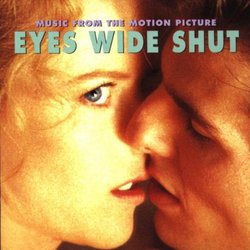 | Jocelyn Pook Eyes Wide Shut: Music From The Motion Picture Genres: Jazz, Pop, Soundtracks, Broadway & Vocalists
The late director Stanley Kubrick's masterful pairing of image, song, and symphony has forever imbued an impossibly eclectic body of music with indelible psychic connotations that range from cosmic grandeur (2001's Also Sp... more » ![header=[] body=[This CD is available to be requested as disc only.]](/images/attributes/disc.png?v=a4e11020) ![header=[] body=[This CD is available to be requested with the disc and back insert.]](/images/attributes/disc_back.png?v=a4e11020) ![header=[] body=[This CD is unavailable to be requested with the disc and front insert at this time.]](/images/attributes/greyed_disc_front.png?v=a4e11020) ![header=[] body=[This CD is unavailable to be requested with the disc, front and back inserts at this time.]](/images/attributes/greyed_disc_front_back.png?v=a4e11020) |
Larger Image |
CD DetailsSynopsis
Amazon.com The late director Stanley Kubrick's masterful pairing of image, song, and symphony has forever imbued an impossibly eclectic body of music with indelible psychic connotations that range from cosmic grandeur (2001's Also Sprach Zarathustra and "The Blue Danube") to cynical irony (A Clockwork Orange's use of Beethoven, Rossini, and Gene Kelly's "Singin' in the Rain"; Vera Lynn's warbling "We'll Meet Again" over Dr. Strangelove's climactic vision of apocalypse) and outright left-field loopiness (the Trashmen's "Surfin' Bird" from Full Metal Jacket); he may not have written a note of it, but it would somehow always be his. Judged against that history, Kubrick's final soundtrack, Eyes Wide Shut, may well be his most subtle and consistently surprising. Typically disparate, yet utterly evocative of the film's complexity of mood and psychosexual undercurrent, it initially glides effortlessly from old Kubrick favorite Ligeti (an excerpt and reprise of "Musica Ricercata II" rendered as a stark, minimalist dirge by pianist Dominic Harlan), through a Shostakovich waltz and Chris Isaak's edgy "Baby Did a Bad Bad Thing" to the schmaltzy ballroom sop of "When I Fall in Love." Crucially, Kubrick also commissioned original music (a rarity in his work since Strangelove) by English composer Jocelyn Pook, and her handful of compelling tracks range from Elgar-autumnal to hauntingly avant-garde, all of it becoming a piece of the director's strange, satisfying stew of classical, rock, jazz, and ostensibly banal pop. A soundtrack that evokes Kubrick's very essence: complex, satisfying, yet wholly enigmatic. --Jerry McCulley Similarly Requested CDs
|
CD ReviewsWhen is a soundtrack not just a soudtrack? J. Lucas | Detroit, MI | 03/15/2000 (5 out of 5 stars) "When it's from a Stanley Kubrick film, that's when. Though it's not for everyone, the soundtrack to Kubrick's beautifully twisted final film, "Eyes Wide Shut", is a musical journey unlike any you've ever taken. Like the film itself, the "Eyes Wide Shut" soundtrack is a dreamlike experience, taking us from heaven to hell and back again. It is Dominic Harlan's riveting piano music that haunts much of the film, and, of course, every nightmarish note is here. We are quickly catapulted into that blurred reality that Tom Cruise's celluloid character spends his two evenings roaming the streets of New York in. Harlan's piano work has the same feel as Kubrick's film -- easily alternating between beautiful and frightening, real and surreal. Featured alongside Dominic Harlan's music on "Eyes Wide Shut" is the brilliant original score of Jocelyn Pook. Pook perfectly captures the film's beauty and menace in such themes as "The Dream", "Migrations" and especially (and most importantly), in the chilling theme, "Masked Ball". The masked ball scene appears midway through the movie and serves as the film's visual centerpiece and turning point. It is the moment where dreams and reality converge once and for all, setting the harrowing second act into motion. Jocelyn Pook's music in this scene -- hypnotic, frightening, and gorgeous -- does wonders for the effectiveness and power of this moment in the film, and is especially glorious when listened to through your headphones. All in all, the "Eyes Wide Shut" soundtrack is not merely a collection of recordings from an extraordinary film. It is a companion to that film, in which we trace Tom Cruise's footsteps through his two nights of dreams and reality, curiosity and jealousy, paranoia and revenge, and finally -- hopefully - truth and redemption. If you're up for the experience, it's a trip well worth taking." Jocelyn Pook has a cd! Christopher Culver | 11/23/1999 (4 out of 5 stars) "I loved Jocelyn Pook's music for Eyes Wide Shut. It's really the only reason I would buy this soundtrack. However most people don't know that Jocelyn Pook released her own cd, Flood, a month ago. It's at amazon. You just have to go under classical search to find it. It's got the complete six minute masked ball song as well as migrations. I can't believe amazon doesn't list it as a recommendation for this album. Anyway I just wanted to let you know that the cd is out there and easily available. However, it doesn't have all of Ms. Pook's compositions for this movie which makes the Eyes Wide Shut soundtrack worth owning as well. If you are like me and loved her music and would like more of the same, check out her new cd Flood. It's truly magical!" Matches well the set and costume design of Kubrick's film Christopher Culver | 04/26/2001 (4 out of 5 stars) "Although Stanley Kubrick's final film "Eyes Wide Shut" was controversial and blasted by many critics, there is little doubt that the film exhibited meticulous and lush set and costume design. The film's soundtrack does an excellent job of matching the style of Kubrick's visuals.The soundtrack opens with Ligeti's minimalist masterpiece "Musica Ricercata, II" performed by the precise Dominic Harlan. Next is the film's opening theme, Shostakovich's "Waltz 2 from Jazz Suite," a sweepingly grand piece given an excellent performance by the Royal Concertgebouw Orchestra. Chris Isaak's "Baby Did a Bad Bad Thing" is the only rock music track on the entire soundtrack, but it fits in surprisingly well.It is, however, the compositions of Jocelyn Pook which truly stand out. He first two pieces, "Naval Officer" and "The Dream" are quiet, disturbing mood pieces. "Masked Ball" is the track played during the opening of the infamous orgy sequence, and it features a chorus played backwards, forming a sort of black-mass atmosphere. "Migrations" is played during the continuation of the orgy, as the Doctor walks room to room. With its wild yell and frenetic strings, this is the climax of the album.The big-band pieces can seem trivial compared to the artistic heights of Pook, but they add good incidental accompaniment to the film.One of the better film soundtracks out there, EYES WIDE SHUT is worth getting, even if the film itself let you down for plot reasons."
|

 Track Listings (14) - Disc #1
Track Listings (14) - Disc #1